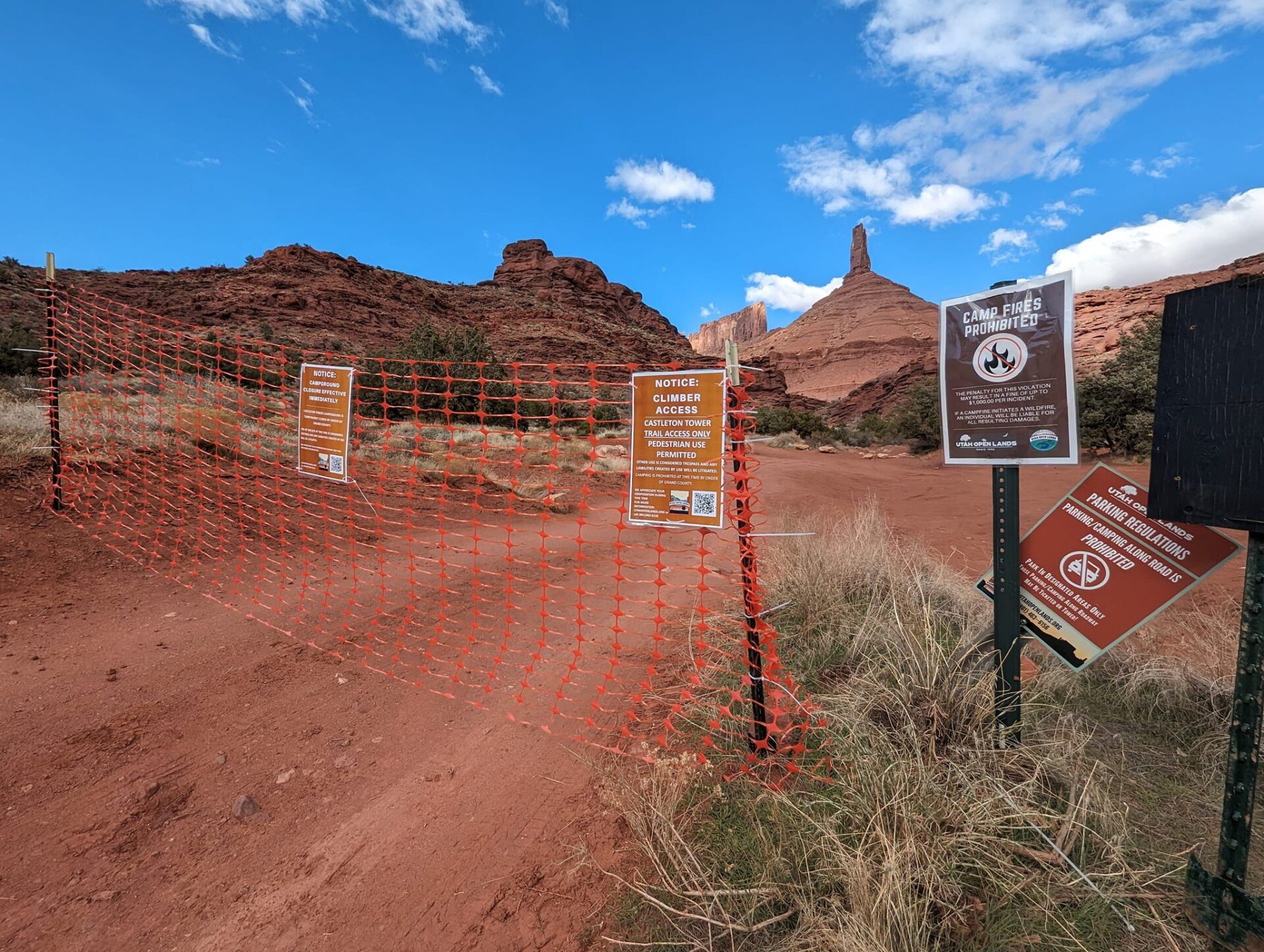As of Feb. 16, the Utah State Senate has temporarily postponed discussion of Senate Bill 168, which is being closely watched by noise-weary Moab residents, local officials and off-highway vehicle business owners and advocates. Consideration of the bill, which would allow resort towns like Moab to place restrictions on OHV use on city-owned streets, is being paused to allow members to consider recent amendments to the legislation before bringing it for a vote. The bill was introduced by Sen. Mike McKell (R-District 7) and was discussed in the Senate Transportation, Public Utilities, Energy, and Technology Committee on Feb. 8. OHV users, business-owners, and advocacy groups attended the legislative discussion in large numbers to air their opposition to the measure.
The bill would allow counties or municipalities to adopt ordinances to designate certain streets as either open to OHV use or open to limited OHV use, and also to adopt ordinances restricting the use of OHVs on city streets between 10 p.m. and 7 a.m. Those hours are an amendment of a previous version of the bill, which would have allowed for the curfew to extend from 8 p.m. to 8 a.m.
Sen. Jacob Anderegg (R-District 13) introduced the bill in committee and began by identifying himself as a four-wheeler enthusiast. However, he said he was impressed by a visit to Moab in the fall of 2020 during which a large group of two-stroke motorcycles drove by his hotel at 5 a.m. Throughout his family’s stay, he said, they saw many groups of OHVs on trails and in town and noticed how loud they are.
“Had I not experienced this myself last October, I most likely would be voting against this bill, because that’s how I feel about access and not restricting it,” Anderegg told the committee. “…But I saw what they were dealing with. I thought in my head at that time, ‘Wow, if I lived here, I’d be pissed.’”
Anderegg emphasized that the bill aims to achieve a balance between encouraging access to the public lands around Moab and allowing local residents to have some control over the quality of life in their town.
Casey Hill, a lobbyist from Red Hill Strategic who spoke at the discussion on behalf of the City of Moab, also highlighted the idea of striking a balance.
About fifteen members of the public attended the discussion either in person or virtually to oppose the bill, describing it as discriminatory. Currently existing noise ordinances are not being used to address the noise problem, some commented, and the legislation doesn’t address the noise from conventional trucks and street motorcycles.
Piute County Commissioner Darin Bushman attended the meeting and described himself in his comments as “an OHV recreationalist first and a county commissioner second.”
“This bill does nothing to solve the problem. It needs to go away because it discriminates against a certain class of recreationists and it paints them as poor stewards,” Bushman said.
“Police are not enforcing our existing noise ordinance,” said Moab resident Kent Green, who owns Moab Cowboy Country Offroad Adventures. Green urged legislators to demand this step be taken first before restrictions are allowed.
Two Moab residents also called in to support the bill, as did Moab Mayor Emily Niehaus and Grand County Commissioner Gabe Woytek.
Moab City Manager Joel Linares called in and made the final comment, addressing many concerns that had been raised by opponents to the bill. Linares explained that even with noise monitoring equipment, proving a noise violation in court beyond a reasonable doubt is very difficult.
He also conceded that vehicles other than OHVs may also be excessively loud. However, he pointed out that Moab rarely has “3,000 Harleys rolling through town at any given time.”
Finally, Linares assured the committee that the city is not aiming at a complete ban of OHVs.
“The city has never said that these are bad actors,” Linares said. “We’re saying that this is a quality of life issue, and our residents are being overrun and cannot sleep at night because of the noise between the late hours of the evening.”
Some senators on the committee worried that the bill was too restrictive; others arguing in its favor said it allows for more control by local governments over their own jurisdictions, a popular philosophy among Utah politicians.
“I see this bill as allowing local control—that it’s permissive, with pretty strong guardrails,” said Sen. Ann Millner (R-District 18), who gave a ‘yes’ vote.
The committee voted 5-2 to send the bill to the Utah State Senate floor, with senators Wayne Harper and Ronald Winterton opposed and Sen. Stuart Adams absent. The amendment to the curfew hours was passed on Feb. 16.
“I see this bill as allowing local control—that it’s permissive, with pretty strong guardrails.”
– Sen. Ann Millner



